#golden age of India
Text
History memes #6

For real though, I’m curious to y’all, who was taught either the Islamic golden age or Indian golden age in school? Cause I don’t think I was taught these until the college level (though I did study the Islamic one independently, though I sadly am not as familiar with the Indian golden age… proving the point)
#history memes#funny humor#funny memes#history#renaissance#golden age of Islam#golden age of India#historiography#islam#india
68 notes
·
View notes
Text
Time Travel Question 47: Early Modernish and Earlier 2 (Reposted. First Version Had Issues
These Questions are the result of suggestions a the previous iteration.
This category may include suggestions made too late to fall into the correct earlier time grouping. Basically, I'd already moved on to human history, but I'd periodically get a pre-homin suggestion, hence the occasional random item waaay out of it's time period, rather than reopen the category.
In some cases a culture lasted a really long time and I grouped them by whether it was likely the later or earlier grouping made the most sense with the information I had. (Invention ofs tend to fall in an earlier grouping if it's still open. Ones that imply height of or just before something tend to get grouped later, but not always. Sometimes I'll split two different things from the same culture into different polls because they involve separate research goals or the like).
Please add new suggestions below if you have them for future consideration. All cultures and time periods welcome.
#Time Travel#Queer History#India#Anne Bonny#Mary Read#Jack Rackham#Beauty Dave#Golden Age of Piracy#Pirates#Wolfgang Amadeus Mozart#The Dancing Plague#Tarrare#The Salem Witch#The Battle of Wayna Daga#The Adal Sultanate#Ethiopian History#Henry Morgan#Sweating Sickness#Dancing Plague#16th Century#18th Century
53 notes
·
View notes
Text
obviously the UK is no better lol but what i learnt from visiting a handful of museums in amsterdam is that the dutch are very very shameless about their colonial history
#.txt#it was literally like! we love the DUTCH GOLDEN AGE we love the DUTCH EAST INDIA COMPANY we love the NEW WORLD
77 notes
·
View notes
Text
Kanhoji Angre: the 18th-Century Maratha Admiral, Pseudo-Pirate, and All-Around Badass
So this post got more notes than I expected it to, so I figure I may as well follow through on my promise to make a post about him! You want to know about the aforementioned badass 18th-century Maratha navy admiral and pseudo-pirate who repeatedly fended off Western invasion in India? Then you shall. I wrote a paper about this guy, so here we go.

Let me introduce you to Kanhoji Angre. Information is scant on his early life and career—sources tend to disagree about his true origins and we don’t know a lot about his family status, but modern historians tend to trace his lineage to Tukoji Angre, his father, who distinguished himself in the early Maratha navy. We know Kanhoji was descended from a long line of Maratha mariners, which meant he fought in a number of naval raids and became acquainted with naval tactics as he grew up. As an adult, he began hiring out his own fleet to the Maratha navy itself, which, at the time, consisted only of numerous small ships and sought Angre’s heavier armament, which would become essentially the centerpiece of the naval force. In a sense he single-handedly built the Maratha navy into quite a formidable force, becoming Sarkhel, or admiral in 1698, and establishing numerous insurmountable forts along the coast.
Of course, the turn of the 18th century also coincided with growing European colonial intentions in India, and Angre’s presence is well-documented in East India Company records as a nuisance, a pirate, and a warlord in different capacities. To the English, he was a formidable pirate, a scourge to European ships on the west coast of the Indian subcontinent, and a menace to the Company, who suffered significant losses at his hand. Their interactions would eventually escalate into full-on military altercations, and the Company would go as far as to seek allyship with the Portuguese and the Viceroy of Goa, but Angre would remain undefeated throughout his lifetime, which consisted of many other interactions with various Western powers. He was arguably the most powerful maritime figure on the Indian coast by the time he died, but the European primary sources tend to play that down as far as they can for obvious reasons.
But I know you’re wondering—was he, then, a pirate? Well, it depends on who you ask. While Kanhoji Angre did, in certain ways, engage in actions that could be considered piracy from an English perspective, he still operated by a clear code of conduct. One account from 1716 tells of an interaction during which Angre detained an East India Company ship to determine whether they had a pass from the governor of Bombay, with whom he was bound to a nonaggression agreement, but otherwise did them no harm when he discovered they did. On the other hand, that same account quickly makes sure to mention how Angre would pursue vessels from Madras and Calcutta, the governments of which he had no agreements with. In the words of Patricia Risso in her excellent article about the topic, Angre “did not share the English legal definition of maritime violence,” which led to the inevitable branding of him as a pirate by the British, despite the fact that he did operate legally in accordance with those with whom he had such legal agreements. Whether this makes him a pirate or not is ultimately a matter of perspective, but in my humble opinion it certainly does not make him less cool.
Regardless of his status as a pirate or a military leader, Kanhoji Angre is a fascinating, highly overlooked, and pretty damn awesome figure in maritime history, and it’s a shame we don’t have more information on him. If you’re interested in more of the primary source material, I’d recommend checking out Clement Downing’s A Compendious History of the Indian Wars: With an Account of the Rise, Progress, Strength, and Forces of Angria the Pyrate, published in 1737 (free on Google Books!), for one such English perspective, which is the source I based my initial paper on. This is mostly my excuse to infodump about a guy I think history Tumblr would love, and who stands to be appreciated more for being an interesting dude and an all-around badass.
#i wrote 10 pages on this guy last semester I can do it again#the captain's lectures#age of sail#piracy#golden age of piracy#indian military#maratha military#maratha#naval history#colonialism#east india company#maritime history#this is your captain speaking#long post
27 notes
·
View notes
Text
what the fuck did the gupta empire do 😭
#i know that it was like. the golden age of india and all that.#but. i need actual fucking achievements and i do not have the energy to read through the wikipedia article#roshan shut up already
3 notes
·
View notes
Text
before i had star wars bad lip reading stuck in my head, now i have the jingles from history of the entire world, i guess stuck in my head
#'THE SUN IS A DEADLY LASER' 'not anymore there's a blanket'#'something's alive in the ocean'#'it's a bird it's a plane it's the seljuk turks'#'EGYPT also CHINA also INDUS RIVER VALLEY' *list of civilizations being mesopotamia egypt china indus river valley & now norte chico 'NORTE#CHICO'#'merchants probably. and they've got SPICES'#'AFRICA'#'taste the sun'#'space dust' 'EVEN CRAZIER SPACE DUST'#'china just made a ROAD TO THE WORLD'#'is loving jesus legal yet?'#'IT'S THE ISLAMIC GOLDEN AGE'#'SOCIETY'#'the mayans have FIGURED OUT THE STARS'#liv won't shut up#history of the entire world i guess#'time to conquer all of india. or most of india.'#'NEW ARRIVALS IN INDIA. maybe they're those horse people i was talking about or their cousins or something. & they brought hymns and#mantras and stuff'#'sike they both get angrier'#'THAT'S LAND'#'bye bye ocean'
3 notes
·
View notes
Text
You are offered 10 Million Dollars to go back in time, live for 10 consecutive years and record your findings. Where/when do you go and why?
Here are the rules:
You are offered to go back in time to any year of the holocene era and you must remain there for 10 consecutive years.
You will be outfitted with video recording devices that can't be detected and record what you see.
You will be innoculated against any potential diseases.
You will be trained in the dominant language of wherever you go prior to your departure.
You will start with enough money to get yourself a modest dwelling.
You cannot alter history, reveal yourself, or produce any children, inventions, art pieces, etc.
You must blend in and you will develop a backstory with historical experts before you go.
You can die/be killed during the duration of the job.
Upon your return you will be awarded $10 Million but 10 years will have passed in the present day meaning your loved ones may have died or moved on to other relationships.
Do you do it? If so where and when do you go?
#history#historians#archeology#art history#ancient history#african history#european history#asian history#polynesian history#oceanian history#south american history#ancient persia#ancient india#ancient greece#ancient china#rennaissance#medeival#sengoku jidai#islamic golden age#ancient rome#ancient celts#norse#ancient egypt#great zimbabwe#19th century#18th century#17th century#16th century
1 note
·
View note
Text
Vrishchak
The baby had been crying its eyes out again. He couldn't say if it was the cold getting to it or hunger. The child could let its needs be known but who could he complain to? A low chuckle escaped the cloaked figure, amused at such a plight.
They had been travelling for weeks now, falling behind any caravan that wouldn't drive them away. The lone father with a child didn't draw pitiful gazes, only suspicious glances of strangers along the road. Hefty prices for leftover food, sadistic guards with twisted humor and the disdain of other travellers only added to the troubles.
He took another look at the infant's face and remorse replaced dry humor. Poor child, born as his son. Might as well be cursed, better off unborn. The love he had indulged in only held misery now.
With that thought, he fell into silent reminiscence.
*****************************************************
She lifted the covers and a sweet nectarine smell wafted up from the pot. Her customers were getting soft, letting up on their drinks like that. Shyalika's Madhushala (Shyalika's Winehouse) wasn't comparable to the Capital's lowest pleasure house, but it was the best Antapur had to offer.
Antapur was far from the capital but not close enough to the border. That meant travelers were few and the same merchants coming to and fro. The only customers she'd have would all be regulars, the rich who could live in luxury.
That meant business was good for her. It didn't boom in festivals or rise on occasions, but steady business was good business.
Shyalika continued putting away the pots. A tipped over cup would remind her of some wayward lecher clutching her hand, trying to get lucky. A shudder would pass through her at the memory. But she would shield herself again, with the same resolve with which she would have such people thrown out of her establishment. The girls were an open treasure, but she was off limits. The whole town knew that by now.
Closing for the night would take up an hour or so, and she could leave until dawn changed to dusk. But today a knock stopped her. Perhaps a drunk who lost track of time, back for more.
She opened the door to find an unexpected traveller standing before her. Clad in a black cloak, a ghost of the past stood there A bit skinnier than she had seen him before, with the hardships of his life plain on his face. She was shocked into silence. Like a greeting the figure moved the cloak aside, revealing a sleeping infant in the same state as the man who held him. That sight brought her back from the trance and she beckoned him in. She cleared out a space and bade him sit there. And then they stared at each other for a moment until Shyalika broke the silence.
"You're… alive," she said slowly.
The man smiled. "Yes, or maybe you drank too much."
She paused again. "The child?"
"Mine"
"The mother?"
"Dead"
"Your wife?"
Silence.
"Where have you been all th-"
"What good will it do? You don't even want to know." He said, his eyes narrowing in annoyance.
"All you need to know," he continued," is that I am here to ask something from you."
"And what would that be?" She asked, with an inkling of the impending request.
"Take this child."
That was the last straw for her.
"Why? Just because you tell me to? Why should I listen to you?" she snapped back.
"You died for me when you left. Then you came back to see me. And then you left. This time I thought you were gone for good. And here you are again, all grown up and with a child in your arms. You left me and had a life of your own. Now you bring this baby to me and expect me to just take him in without asking anything? Who do you take yourself to be? A real emperor just because you're named so? TELL ME! Why I should listen to you?"
Samrat's frown softened. His eyes relaxed and he looked tired. The stern man slipped away and in his place was now someone she recognised. The young boy, too shy to talk back to people. The boy who enjoyed her company, who would make sweet promises to her ages ago. Under the trees, beside the river, up on the hills, the time they spent together rushed back into her mind, putting the usually resolute woman in turmoil.
"The last time I saw you," he began, "I had become a spy for the king, a vrischak. A glorified name for mere tools, stripped of their humanity. When the delusion of righteousness wore off, I wanted to leave it all and be free. The closest to freedom I ever felt was when I could be with… her. We ran and hid, trying to escape from the inevitable sting that sought its own twisted justice" he said, in a voice that betrayed the suppressed rage.
"We ran away and never looked back. I'd always find familiar eyes stalking every move we made in hiding. Some were merciful, letting us run. But eventually, we had to stop. We settled in a place almost like this town. She gave birth there… but she couldn't…" he choked up.
"With her gone, escape was easier. But I want this child to be free of my shadow, free of the fate that awaits me. Please, take him in. I beg you." he pleaded, his eyes welling up, "You can make him your servant. You don't have to treat him as your child. Just let him live. Please."
Shyalika pondered something in silence. Then, she spoke up.
"I didn't marry anyone, ever since you left. Hoping for a childish dream to come true and here I am, raising your child whom I did not bear. Fine. I have lived alone here and braved the wars. The famines too. A child of an unknown father makes no difference."
Samrat's face cheered up, in the sad way it always had.
"But tell me this, vrishchak. What do you intend to do once you leave?" she asked, her steely gaze fixed on him.
Samrat returned the look, with a dark look in his eyes that seemed to betray no emotion but one. He said one word:
"Revenge"
#fiction#original content#original writing#original story#original fiction#story#writing#writers#ancient india#indian#mauryan#golden age#sanskrit#sad#trying my hand at writing a piece inspired by Rajat Pillai's novel I had read as a child#i hope to gods this isn't my last
1 note
·
View note
Text

0 notes
Text
We Have a Tie! Time Travel Question 47 Run Off
These Questions are the result of suggestions a the previous iteration.
Please add new suggestions below if you have them for future consideration. All cultures and time periods welcome.
#Time Travel#Queer History#India#Anne Bonny#Mary Read#Jack Rackham#Golden Age of Piracy#Pirates#16th Century#18th Century#India History#History of India
11 notes
·
View notes
Text
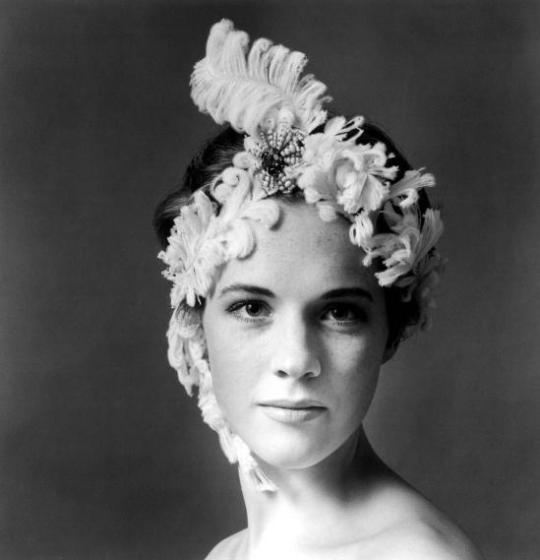
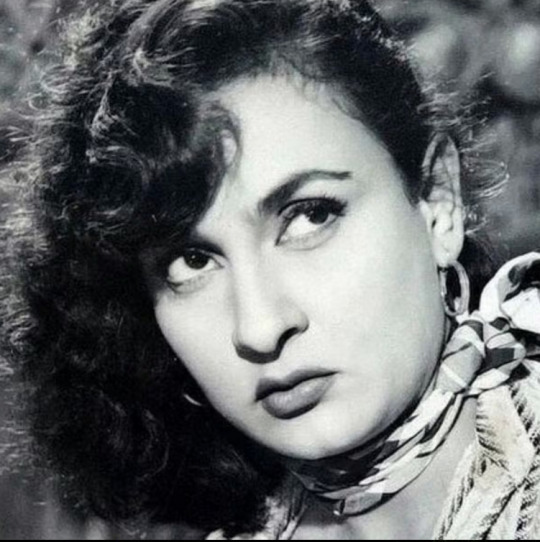
Propaganda
Julie Andrews (The Sound of Music, Mary Poppins)—Oh where to start .... I'm not sure I even know how. She's just perfection. And it's not fair I can't bring post 70s work into this, because she just gets better and better, and her drag performance in to die for. But in the era I CAN talk about, she shows she has THE RANGE. Beautiful, feisty, funny, holding her own against Christopher Plummer, Paul Newman, Rock Hudson. Oh she's luminous.
Nadira (Shree 420, Dil Apna Aur Preet Parai)— She had a blast playing the femme fatal in Indian films in the 50s. Also the costumes she wore in Shree 420 are absolutely iconic. It's important to mention that she was Jewish. She was born Farhad "Florence" Ezekiel in Baghdad to an Iraqi Jewish family. They moved to India sometime in the 1940s. The funny thing is that she originally wanted to convert to Catholicism and become a nun but joined the film industry instead as her family desperately needed money. Even though she was unfortunately typecast in femme fatale roles after playing the nightclub entertainer Maya in Shree 420, she always gave 110% to every role she was cast in. Apparently she acted in a German film as well? She was also one of the most highly paid actresses in the Indian film industry and was one of the few Indians to own a Rolls Royce.
This is round 3 of the tournament. All other polls in this bracket can be found here. Please reblog with further support of your beloved hot sexy vintage woman.
[additional propaganda submitted under the cut.]
Julie Andrews propaganda:
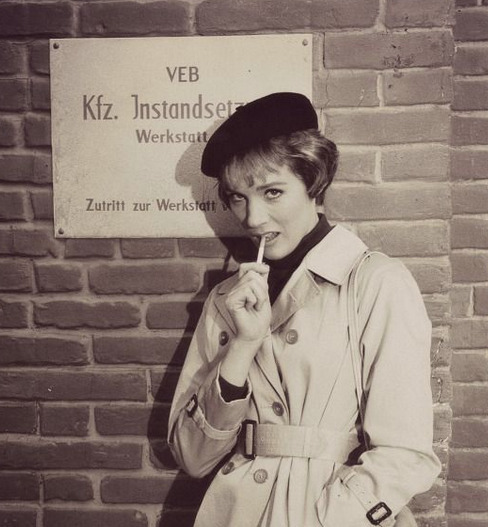
"She has such a simple but amazing beauty to her. Not to mention her amazing and melodic singing voice!"

"Roles like nannies and governesses can make us forget how attractive she was! A perfect combination of elegant and adorable, with the most incredible vocal range to boot!"
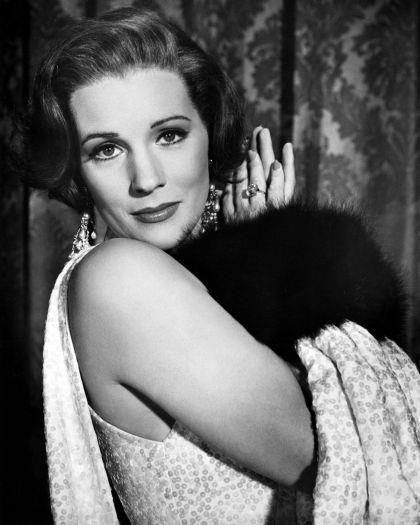
"Besides having one of the most amazing singing voices ever to grace the silver screen, Julie always had an understated beauty to her that wasn't always shown off on screen. But it's there nonetheless because her characters managed to pull some of the hottest men ever to grace the screen."

"The juxtaposition between carefree Maria and stern but fun Mary Poppins shows the power of the acting of this HOT VINTAGE MOVIE WOMAN"
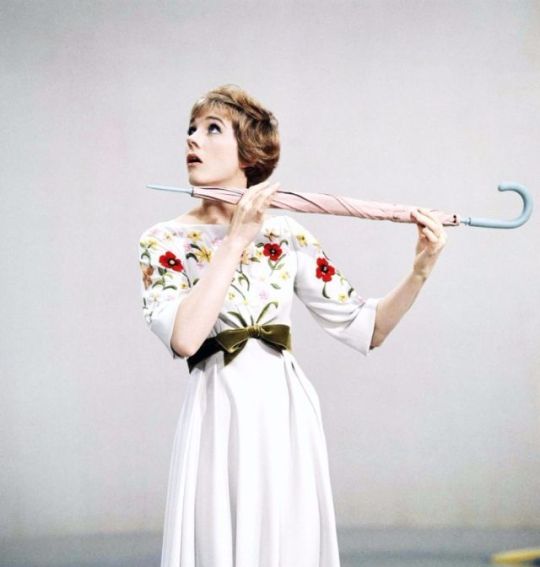
"Charming, genteel, incredibly charismatic, beautiful, and has an angelic singing voice to boot. Her screen roles as Maria in The Sound of Music and Mary Poppins are absolutely iconic for a reason and she originated several well-known Broadway roles before those."

"the most beautiful woman 12 year old me had ever seen possibly"
"OMG OMG OMG she’s definitely been submitted before how could she NOT but!!!! I loveeee her so muchhhh rahhhh prebby!!!! cool!!!! mary poppins the beloved <33333 some people dislike it but I love jolly holiday so much because it IS a jolly holiday with Mary!!! no wonder that it’s Mary that we love!!!!!"
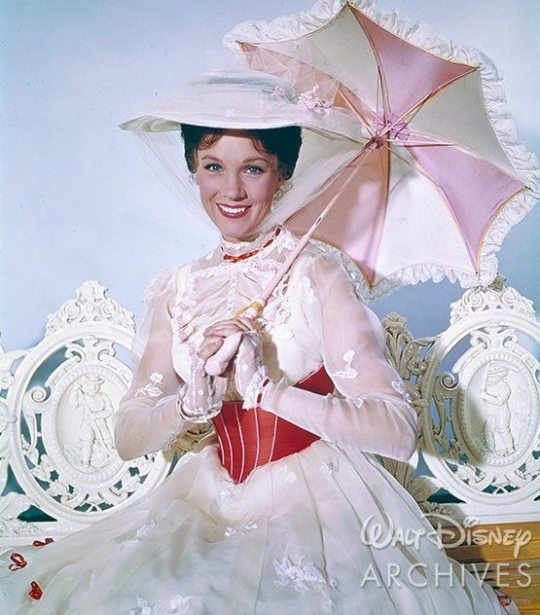
"I know many people who were taught in singing lessons "when in doubt, pronounce words how julie andrews would pronounce them." THATS CALLED INFLUENCE. THATS CALLED MOTHERING THOUSANDS."

Nadira:
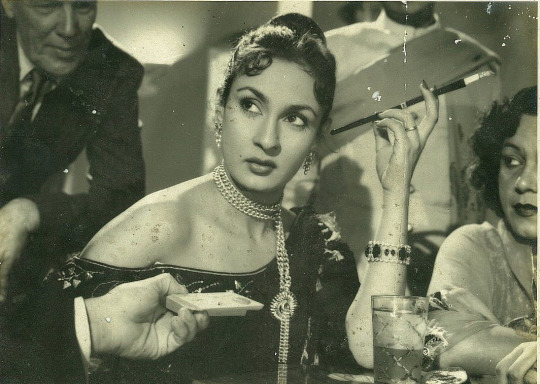
I just submitted a whole list of golden-era Bollywood stars without whom I thought this tournament could not conscionably be considered complete BUT Nadira has got my personal vote for Hottest of the lot. She played a bunch of delicious vamp roles in her youth before graduating to being a creepy spiderlady antagonist type in middle/older age. Rare is the still in which she looks like she's NOT about to gnaw your face off. Yow!
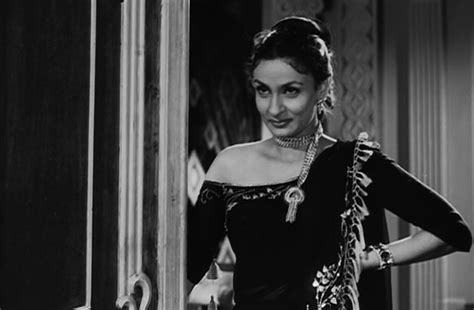
204 notes
·
View notes
Text
Sevika's tastes
Sevika is an old lady and she just wants to be left alone. She likes to look good but when it comes to clothes, Miss thing just doesn’t care that much. She always has practicality in mind. So, no dresses, nothing flowy, has to have natural fabrics so that her skin can breathe, and she requires that things are comfortable.
Her shoes are always made for hardware with a strong sole and often reinforced. In the modern world, I see her working in metal working (specifically welding), so she has to have clothes that are multipurpose.
Though, if she was forced to wear anything really nice, it would be a simple well-cut blazer and a button down with jeans or slacks that conform to her legs nicely.
She prefers earthy colors, nothing too flashy. I think she’d really appreciate a nice dark green, or perhaps brown.
I also feel that she would enjoy a nice flannel regularly.
With food, I’m afraid her palette is as unrefined as her clothing choices. She genuinely does not care what she eats, though she really likes chicken- loves hot wings, spicy food is her love. But, her comfort food will always be the food native to what part of India her family is from.
I don’t think she’s the best cook, but she has a few family recipes that she knows so well (aloo gobi, chai, samosa, tikka masala, saag paneer). And, I think that on nights where she’s feeling really sad or lonely she always craves those foods.
She’d love to cook with or for her partner, it’d be the best way to get to know her honestly. Because it allows for her to show vulnerability through actions and without words. She loves to take care of people and I think in modern times she’d mother her friends just a bit, always making sure they’re eating well, drinking their water, and sleeping right (if not she’ll give them some chai).
She doesn’t eat beef or dark meats in general, and she isn’t the biggest fan of seafood or turkey. So, she sticks with her chicken and her paneer. She’ll eat tofu but it needs to be in curry or something similar.
This woman would love 80s hair metal, music is something that I genuinely believe she’d love so much. She’d play drums as a teenager, dead set on becoming the drummer of the next Metallica. She’d also love the old school heavy metal bands, Iron Maiden, Metallica, Black Sabbath, Pantera. She’d love them all. I think she’d like some old school 90s rap too, but none of the new-age mumble rap that’s going on.
She wouldn’t really like Taylor Swift’s music, just because it didn’t vibe with her, but she respected Taylor’s ability to get a bag.
She has had a huge crush on Adele ever since she heard the album 25 when it came out. She liked some of her music, but thought Adele was drop dead gorgeous and all mature and soulful and shit, hit her in the feels and made her whipped for this woman she didn’t even know.
For movies she loves shitty 80s slasher horror, nothing that makes her think. She’d sit back in her old recliner in her pajamas and house slippers whilst watching Slumber Party Massacre for the third time, and then put on Golden Girls because she feels that Dorothy Zbornak is her spirit animal.
She likes a good sitcom too and a ridiculous drama (she loves Desperate Housewives), she likes the camp, the over the top acting and dumb plots, it makes her laugh and feel care free in a way she hasn’t been in a long time.
She just wants to curl up with her pets (she would have many) and watch teen-based tv shows that revolve around crime or secrets (Pretty Little Liars, Riverdale, Vampire Diaries, even Buffy etc.). She likes how bad they are, but she gets so invested it’s ridiculous.
For personal scents she’d like more woody, alluring scents that are also kind of sweet. Think Amber by Rag n’ Bone (it smells so good), she doesn’t spray much, just a spritz, it wafts around her just slightly, just enough for women to fall at her feet.
Her individual smell wouldn't be overpowering but it would definitely be clear. It’s grounding and soothing. Her sweat stinks though, every time she comes back from the gym, she goes straight to the showers because her own dogs don’t want to come near her b.o.
In general, Sevika is an old woman who couldn’t give less of a shit. She wants to be left alone with her life and her people and chill. Which is why, I feel like she isn’t that opinionated on much unless it’s boundaries or causes she cares about. She just doesn’t have the energy to be bothered with trivial things like which movie to choose for the night, or which restaurant to go to. She is tired and all she wants to do is eat good food with her partner and her pets in a little cottage in the middle of nowhere. She doesn’t like neighbors and she doesn’t like people in her business. She doesn’t need a perfect life, just one that’s hers.
for whatever reason the letters are being weird, it is killing me. Please ignore it.
#lesbiansafe#sapphic#wlw#lesbian#gay#butch#arcane#vi arcane#vi#vi arcane x reader#vi x reader#arcane sevika#sevika arcane#sevika#sevika fluff#sevika smut#sevika x reader#mel medarda#ambessa x reader#ambessa medarda#arcane ambessa#gn reader#hester
160 notes
·
View notes
Text

“Merle Oberon, the durable Anglo-Indian beauty born Estelle Merle O’Brien Thompson in Tasmania (1911), made her film debut as an extra in a 1930 British B film, but soon her dramatic if one-dimensional beauty caught the eye of the Hungarian-born British producer Alexander Korda, who groomed her for stardom and was her husband for a time. In 1935 he sold a half-share in her contract to Samuel Goldwyn, another famous star spotter, who oversaw her transition from exotic to all-American. Never a top star but a popular actress in a number of prestigious films, Oberon continued to make periodic starring appearances until her death.”
/ From Hollywood Colour Portraits by John Kobal, 1981 /
Born on this day: exquisite golden age Hollywood leading lady Merle Oberon (19 February 1911 - 23 November 1979). Of course, we now know that Oberon was actually born in Bombay, India rather than Tasmania, but that wasn’t common knowledge when film historian Kobal wrote his book in the early eighties. In her lifetime Oberon took painful efforts to conceal her mixed-race heritage (when even an onscreen interracial kiss – then called “miscegenation” - was strictly forbidden by the Hays Code), including the use of toxic skin-lightening make-up containing mercury. (A few years ago, the reliably excellent and addictive You Must Remember This podcast devoted an instalment to Oberon – look it up!). In her romantic lead heyday Oberon specialized in period dramas (she’s probably best remembered for playing Catherine Earnshaw in Wuthering Heights (1939)), but I like her best in the movies that forced her out of her primarily decorative and ladylike comfort zone like the sordid Temptation (1946), the nymphomania-themed melodrama Of Love and Desire (1963) and especially the obscure 1956 film noir The Price of Fear, in which she plays a prim high society woman whose life unravels after a hit-and-run incident.
#merle oberon#cecil beaton#you must remember this podcast#lobotomy room#you must remember this#biracial#old hollywood#classic hollywood#golden age hollywood#golden age of hollywood#leading lady
34 notes
·
View notes
Text
marigolds

It's October! For half the hemisphere, the nights are getting longer, the wind is getting colder and the weather is taking on a distinct grey and overcast mood. What better time than now to steal a few last bursts of brilliant, warm sunshine and keep them close against the coming of winter?
Enter October's flower (one of them) - the marigold.
An interesting thing I found while researching this month's flower was that its native to the Americas - and yet some sites list the ancient Greeks and Romans having traditions surrounding the marigold. One of the sites even mentions the flower being introduced to the 'Americas' several sentences after telling me its native to Mexico. I think some of the confusion may come from the fact that there are marigolds of the Tagetes genus, which are the ones I think of when I think of marigolds, that were first mentioned by the Aztecs and are native to the Americas - and there is a flower, Calendula officinalis, called the 'pot marigold' which comes from the same daisy family but is a different genus and seems to originate in southern Europe. To add to the confusion, the Spanish imported the Tagetes marigold from the Americas and from Spain it spread to, particularly, monastery gardens across Europe where it was cultivated into various strains with names like the African or French marigold. The American marigold didn't even have an official genus name until 1753. So, sorting through marigold myths was a lot like playing 'guess which twin it is' for me especially since the majority of the sites I was wandering through either weren't aware of a difference or didn't differentiate. I found one site that marked the difference between them (shout out to growingvale.com). I can understand why. We're only talking flower folklore here, not nuclear codes. My little nitpicky soul though just wasn't happy until it figured out what was going on. I am now going to spew facts at you and try to tell you which flower is which for each of them.
We'll see how I do.
Let's start at the beginning.
Tagetes marigolds were first recorded as being cultivated by the Aztecs, who considered them both medicinal and sacred. That tradition has carried over into Mexico's el Día de los Muertos, the Day of the Dead, which is celebrated either in late October or Early November depending on the region. How much of that is straight from the Aztecs and how much is later European influence via Catholicism is still up for debate but the marigold plays a special part in both. The brightness and strong scent of the marigold flowers are believed to help guide the spirits of the dead to their family and to the offerings left out for them. You watched Disney's Coco (or Fox's The Book of Life), you get it. The Day of the Dead is celebrated outside of Mexico as well, with traditions varying from place to place but right now, we're talking marigolds.
In a half step to the side of that, the Victorians also considered marigolds a funeral flower but in a solemn and grief-filled way that made their cheery color inappropriate for any other kind of bouquet.
In South Asia, the Tagetes marigold has in large part replaced Calendula officinalis marigold while still serving the same purpose. There marigolds are used to create garlands and decorations for weddings, festivals and sacred holidays. Both Buddhism and Hinduism attach spiritual significance to the flowers. In India, giving a garland of marigolds to someone is considered a sign of friendship.
Walking it back to our Calendula officinalis marigold, the common name of 'marigold' is actually a break down of 'Mary's gold'. The golden colored plant was often left on alters and shrines to the Virgin Mary in Catholic countries in the middle ages by people that couldn't afford to leave actual coins. Its bright sunshine color and availability to everyone soon became associated with her.
This is the marigold that the ancient Romans and Greeks used medicinally and that medieval Europe thought was a cure against the plague. This is also the marigold that was woven into garlands for doors and livestock in Ireland to keep away fairy attention.
Both branches of flowers are popular with love superstitions, representing never having to lose a love and as a good luck charm when it comes to love.
And let's round things off with a gardening fact. Marigold are considered excellent companion plants for most vegetable gardens because they repel pests from the big to the very tiny kind. Just check before you plant. Their roots also give off an antibacterial chemical that will wreck havoc on your legumes.
Happy birthday, October babies!

#marigold#marigolds#folklore#superstition#cottagecore#herbalism#herbology#october#birth flower#day of the dead#dia de los muertos#dia de muertos#right up there with#dandelions#as a sunshine flower#flowers#language of flowers#meaning of flowers
58 notes
·
View notes
Text
How many of these "Top 100 Books to Read" have you read?
(633) 1984 - George Orwell
(616) The Great Gatsby - F. Scott Fitzgerald
(613) The Catcher In The Rye - J.D. Salinger
(573) Crime And Punishment - Fyodor Dostoyevsky
(550) Catch-22 - Joseph Heller
(549) The Adventures Of Tom And Huck - Series - Mark Twain
(538) Moby-Dick - Herman Melville
(534) One Hundred Years Of Solitude - Gabriel Garcia Marquez
(527) To Kill A Mockingbird - Harper Lee
(521) The Grapes Of Wrath - John Steinbeck
(521) Lolita - Vladimir Nabokov
(492) Pride And Prejudice - Jane Austen
(489) The Lord Of The Rings - Series - J.R.R. Tolkien
(488) Brave New World - Aldous Huxley
(480) Ulysses - James Joyce
(471) Jane Eyre - Charlotte Bronte
(459) Wuthering Heights - Emily Bronte
(398) The Brothers Karamazov - Fyodor Dostoyevsky
(396) Great Expectations - Charles Dickens
(395) To The Lighthouse - Virginia Woolf
(382) War And Peace - Leo Tolstoy
(382) The Sun Also Rises - Ernest Hemingway
(380) The Sound And The Fury - William Faulkner
(378) Alice's Adventures In Wonderland - Series - Lewis Carroll
(359) Frankenstein - Mary Wollstonecraft Shelley
(353) Heart Of Darkness - Joseph Conrad
(352) Middlemarch - George Eliot
(348) Animal Farm - George Orwell
(346) Don Quixote - Miguel de Cervantes Saavedra
(334) Slaughterhouse-Five - Kurt Vonnegut
(325) Les Misérables - Victor Hugo
(320) Harry Potter - Series - J.K. Rowling
(320) The Chronicles Of Narnia - Series - C.S. Lewis
(317) Anna Karenina - Leo Tolstoy
(308) Lord Of The Flies - William Golding
(306) Invisible Man - Ralph Ellison
(289) The Golden Bowl - Henry James
(276) Pale Fire - Vladimir Nabokov
(266) Gone With The Wind - Margaret Mitchell
(260) The Count Of Monte Cristo - Alexandre Dumas
(255) The Hitchhiker's Guide To The Galaxy - Series - Douglas Adams
(252) The Life And Opinions Of Tristram Shandy, Gentleman - Laurence Sterne
(244) Madame Bovary - Gustave Flaubert
(237) Vanity Fair - William Makepeace Thackery
(235) The Trial - Franz Kafka
(233) Absalom, Absalom! - William Faulkner
(232) The Call Of The Wild - Jack London
(232) Emma - Jane Austen
(229) Beloved - Toni Morrison
(228) Little Women - Louisa May Alcott
(224) A Passage To India - E.M. Forster
(215) Dune - Frank Herbert
(215) A Portrait Of The Artist As A Young Man - James Joyce
(212) The Stranger - Albert Camus
(209) One Flew Over The Cuckoo's Nest - Ken Kesey
(209) The Idiot - Fyodor Dostoyevsky
(206) Dracula - Bram Stoker
(205) The Picture Of Dorian Gray - Oscar Wilde
(197) A Confederacy Of Dunces - John Kennedy Toole
(193) Mrs. Dalloway - Virginia Woolf
(193) The Age Of Innocence - Edith Wharton
(193) The History Of Tom Jones, A Foundling - Henry Fielding
(192) Under The Volcano - Malcolm Lowry
(190) The Odyssey - Homer
(189) Gulliver's Travels - Jonathan Swift
(188) In Search Of Lost Time - Marcel Proust
(186) Midnight's Children - Salman Rushdie
(185) An American Tragedy - Theodore Dreiser
(182) The Book Thief - Markus Zusak
(180) Siddhartha - Hermann Hesse
(179) The Magic Mountain - Thomas Mann
(178) Things Fall Apart - Chinua Achebe
(178) Tropic Of Cancer - Henry Miller
(176) The Outsiders - S.E. Hinton
(176) On The Road - Jack Kerouac
(175) The Little Prince - Antoine de Saint-Exupery
(173) The Giver - Lois Lowry
(172) Brideshead Revisited - Evelyn Waugh
(172) A Clockwork Orange - Anthony Burgess
(171) Charlotte's Web - E.B. White
(171) The Ambassadors - Henry James
(170) Infinite Jest - David Foster Wallace
(167) The Complete Stories And Poems - Edgar Allen Poe
(166) Ender's Saga - Series - Orson Scott Card
(165) In Cold Blood - Truman Capote
(164) The Wings Of The Dove - Henry James
(163) The Adventures Of Augie March - Saul Bellow
(162) As I Lay Dying - William Faulkner
(161) The Hunger Games - Series - Suzanne Collins
(158) Anne Of Greene Gables - L.M. Montgomery
(157) Atlas Shrugged - Ayn Rand
(157) Neuromancer - William Gibson
(156) The Help - Kathryn Stockett
(156) A Song Of Ice And Fire - George R.R. Martin
(155) The Good Soldier - Ford Madox Ford
(154) The Da Vinci Code - Dan Brown
(153) I, Claudius - Robert Graves
(152) Wide Sargasso Sea - Jean Rhys
(151) The Portrait Of A Lady - Henry James
(150) The Death Of The Heart - Elizabeth Bowen
#books#book lists#p#im posting this so i can reblog it with my own crossed out list and i encourage others to do the same if you want to#i dont actually know how many ive read yet myself
20 notes
·
View notes
Text
I have said this before, and also gestured at it in a lot of my recent posts, but every time I think about it I am increasing convinced that the explanation for the Great Divergence is basically "there's nothing to explain".
Ok, maybe that's a little unfair: there is something to explain. Western European states and the US saw a series of remarkable technological leaps during roughly the period from 1600 to 1900, which allowed them to achieve astonishing wealth and global political power. There is an explanandum here.
But what I mean when I say there's nothing to be explained is the following. We already have good reason to believe that technological growth is approximately exponential. Technology is self-compounding: the more of it you have, the more of it you can develop. And very many metrics that we would expect to correlate with technology, like agricultural yield and life expectancy, seem to grow exponentially. So I think the idea that technological growth is more-or-less exponential is well evidenced. When something grows exponentially, there is necessarily going to be a point of rapid take-off, a "foom". This is also something we see with technology, and life expectancy, and so on, particularly around the time of the industrial revolution.
This is fairly uncontroversial.
Another fact that I think is uncontroversial is that technological and scientific growth are subject to network effects, and subject to local material conditions. Societies that are generally wealthier may have more time and resources to spend on science, etc., and once you have a bunch of scientists working together in a specific place and sharing ideas, you get more rapid advancement. This seems true even in today's highly interconnected world, which is presumably related to why a small number of universities produce so much cutting edge research—they have the funding and the networks of top people. And I think there really is a sense in which you have many more opportunities for fruitful research and collaboration at e.g. an R1 university than an R2 university. The network effects still matter a lot. In the world before the twentieth century, when information traveled much slower, network effects would presumably have been much more important.
This is, again, a conclusion that I think is independently obvious and uncontroversial. If there was some sense in which it was not true, that would deeply surprise me.
But, look: the conclusion of these too facts taken together is basically that the observed course of history was (in a sense) inevitable. The second fact predicts that you'll get localized "scientific booms" through history, where a bunch of progress is being made in one area. We see this multiple times, with "golden ages" of science and philosophy in the Bronze Age Near East, in the Greco-Roman world, in ancient India, Tang China, the medieval Islamic world, and so on. Obviously I think in some sense "golden ages" are post hoc constructions by historians, but I think there's likely at least some reality behind them. So you have these localized scientific booms that slowly contribute to the exponential increase in global scientific knowledge. And it follows, if scientific growth is exponential, that there's going to be a foom. And it follows that whoever's having a boom when there's a foom is going to benefit a lot—in fact, exponentially more than anyone has before!
I am tempted to call this the "boom and foom theory" of the scientific and industrial revolution.
But it's not really a theory. It's a prediction of two existing theories about technological growth generally, taken together.
And it seems consistent with observation to simply say that Western Europe got lucky, to be having a boom when the foom happened. This is what I mean when I say "there's nothing to explain". I am not really sure we need anything extra to explain why this happened where it did geographically. I mean obviously you can dig in to the historical particulars, but ultimately... it was bound to happen somewhere.
Maybe there's something I'm missing here, or maybe I'm being excessively deterministic. But I think probably that any more particular theory of why the Great Divergence happened needs to justify itself against this one; it needs to explain why it adds anything to the picture that this does not already account for. But I don't know.
46 notes
·
View notes